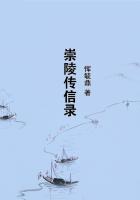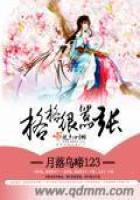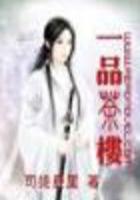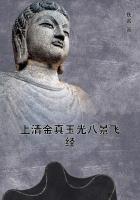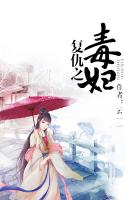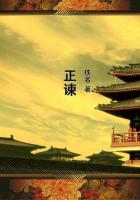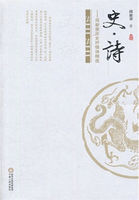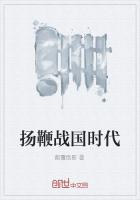Here Fleeming and his father spent a pleasant time together, sketching old castles, and observing the customs of the peasantry. Fleeming was precocious, and at thirteen had finished a romance of three hundred lines in heroic measure, a Scotch novel, and innumerable poetical fragments, none of which are now extant. He learned German in Frankfort; and on the family migrating to Paris the following year, he studied French and mathematics under a certain M. Deluc. While here, Fleeming witnessed the outbreak of the Revolution of 1848, and heard the first shot. In a letter written to an old schoolfellow while the sound still rang in his ears, and his hand trembled with excitement, he gives a boyish account of the circumstances. The family were living in the Rue Caumartin, and on the evening of February 23 he and his father were taking a walk along the boulevards, which were illuminated for joy at the resignation of M. Guizot. They passed the residence of the Foreign Minister, which was guarded with troops, and further on encountered a band of rioters marching along the street with torches, and singing the Marseillaise. After them came a rabble of men and women of all sorts, rich and poor, some of them armed with sticks and sabres. They turned back with these, the boy delighted with the spectacle, 'I remarked to papa' (he writes),'I would not have missed the scene for anything. Imight never see such a splendid one ; when PONG went one shot. Every face went pale: R--R--R--R--R went the whole detachment [of troops], and the whole crowd of gentlemen and ladies turned and cut. Such a scene!---ladies, gentlemen, and vagabonds went sprawling in the mud, not shot but tripped up, and those that went down could not rise--they were trampled over. . . . I ran a short time straight on and did not fall, then turned down a side street, ran fifty yards, and felt tolerably safe; looked for papa; did not see him; so walked on quickly, giving the news as I went.'
Next day, while with his father in the Place de la Concorde, which was filled with troops, the gates of the Tuileries Garden were suddenly flung open, and out galloped a troop of cuirassiers, in the midst of whom was an open carriage containing the king and queen, who had abdicated. Then came the sacking of the Tuileries, the people mounting a cannon on the roof, and firing blank cartridges to testify their joy.
'It was a sight to see a palace sacked' (wrote the boy), 'and armed vagabonds firing out of the windows, and throwing shirts, papers, and dresses of all kinds out.... They are not rogues, the French; they are not stealing, burning, or doing much harm.' [MEMOIR OF FLEEMING JENKIN, by R. L. Stevenson.]
The Revolution obliged the Jenkins to leave Paris, and they proceeded to Genoa, where they experienced another, and Mrs. Jenkin, with her son and sister-in-law, had to seek the protection of a British vessel in the harbour, leaving their house stored with the property of their friends, and guarded by the Union Jack and Captain Jenkin.
At Genoa, Fleeming attended the University, and was its first Protestant student. Professor Bancalari was the professor of natural philosophy, and lectured on electro-magnetism, his physical laboratory being the best in Italy. Jenkin took the degree of M.A. with first-class honours, his special subject having been electro-magnetism. The questions in the examinations were put in Latin, and answered in Italian. Fleeming also attended an Art school in the city, and gained a silver medal for a drawing from one of Raphael's cartoons. His holidays were spent in sketching, and his evenings in learning to play the piano; or, when permissible, at the theatre or opera-house; for ever since hearing Rachel recite the Marseillaise at the Theatre Francaise, he had conceived a taste for acting.
In 1850 Fleeming spent some time in a Genoese locomotive shop under Mr.
Philip Taylor, of Marseilles; but on the death of his Aunt Anna, who lived with them, Captain Jenkin took his family to England, and settled in Manchester, where the lad, in 1851, was apprenticed to mechanical engineering at the works of Messrs. Fairbairn, and from half-past eight in the morning till six at night had, as he says, 'to file and chip vigorously, in a moleskin suit, and infernally dirty.' At home he pursued his studies, and was for a time engaged with Dr. Bell in working out a geometrical method of arriving at the proportions of Greek architecture. His stay amidst the smoke and bustle of Manchester, though in striking contrast to his life in Genoa, was on the whole agreeable. He liked his work, had the good spirits of youth, and made some pleasant friends, one of them the authoress, Mrs. Gaskell. Even as a boy he was disputatious, and his mother tells of his having overcome a Consul at Genoa in a political discussion when he was only sixteen, 'simply from being well-informed on the subject, and honest. He is as true as steel,' she writes, 'and for no one will he bend right or left... Do not fancy him a Bobadil; he is only a very true, candid boy.
I am so glad he remains in all respects but information a great child.'
On leaving Fairbairn's he was engaged for a time on a survey for the proposed Lukmanier Railway, in Switzerland, and in 1856 he entered the engineering works of Mr. Penn, at Greenwich, as a draughtsman, and was occupied on the plans of a vessel designed for the Crimean war. He did not care for his berth, and complained of its late hours, his rough comrades, with whom he had to be 'as little like himself as possible,'

